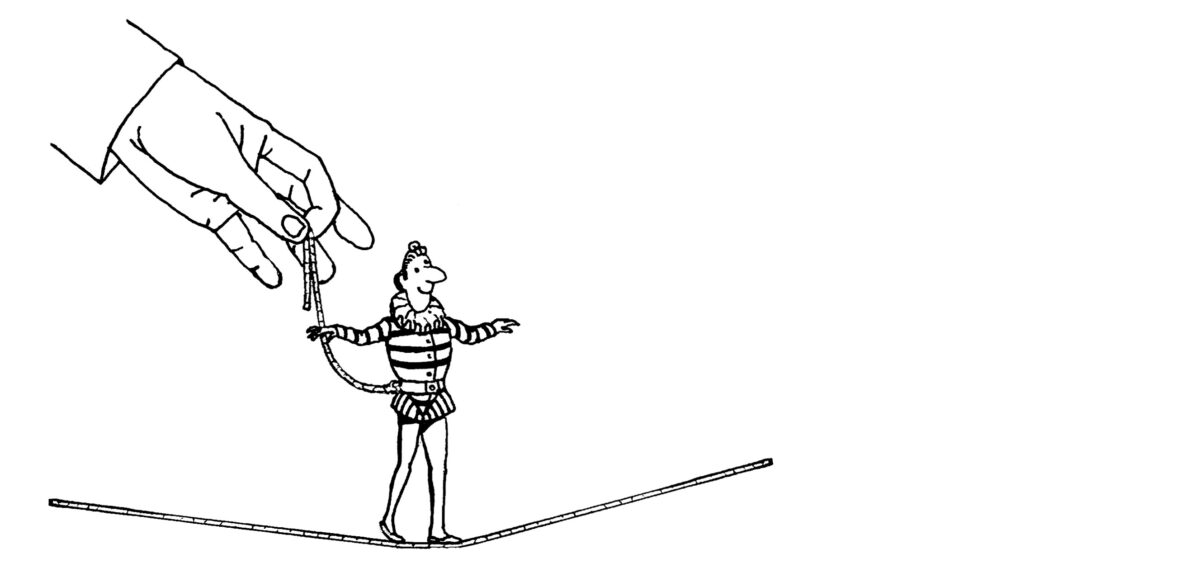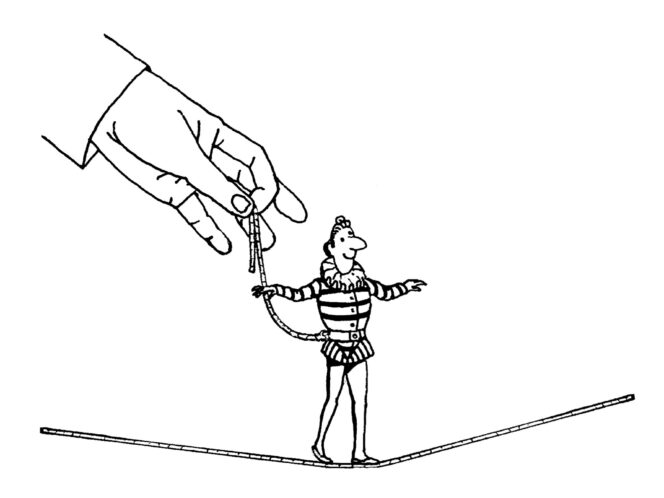
We speak of work mainly as a threat. To our rights (bad, exploitative employers) and our well-being (Poles work their fingers to the bone). Or the reverse: we’re afraid to lose it and fear that Artificial Intelligence is taking our jobs. But maybe, for a change, let’s talk about how work gives our life value and meaning. And that many of us like what we do.
Małgosia is really good at what she does. She can cure bed sores and amuse and liven up pensioners. They stroll arm-in-arm with her, without walkers or wheelchairs, tearing their soupy gaze from the television—they chat and smile. But the work is hard. Twelve-hour shifts, with no full-time contract. Short vacations because when one caretaker rests, the other works twice as hard. There are few takers for this job, which is so necessary in an aging society, yet is poorly remunerated. It is mainly handled by older women, with plenty of emotional fortitude, but sometimes lacking the physical strength to match.
There are ten seniors to every caretaker. You have to lift and turn their incapacitated bodies, wash them, give them food and drinks, do their hair, find their favorite sweater in the wardrobe, brush their dentures. You have to explain the same things multiple times, ignore the fits of anger, frustration, aggressive dementia, or forgetfulness. You have to keep on caring, despite the lack of improvement, or even with the guarantee that things will get worse. One might say this of accompanying people through their old age and demise: it is hopeless work. But Małgosia likes it. It is plain for everyone to see—in her tenderness when she talks to the seniors, in the hugs and kisses, in their shared smiles, the commitment with which she seeks ways to improve their health and mood. Clearly, she was made for this. It is generally considered one of the more difficult professions. Hard to imagine one would choose it, let alone have passion for it. And yet.
My accountant Beata seldom speaks up. There is not much to say about her except that she is remarkably modest, though highly competent. She counts quickly and precisely and, it seems, makes no mistakes. She advises well and accurately. Compared to others to whom I’ve entrusted my finances, she has always been more scrupulous and conscientious, and, in my best interests, demanding. For as long as she did my accounting, the tax department and medical insurance had no cause to complain. We saw each other sporadically. She spent the days in a tidy, quite plain office on the far side of town. I was surprised she chose this place. She simply explained that she liked it there because it’s peaceful and quiet; it’s easier to concentrate. I sometimes brought her books to thank her for being so careful. She repaid me with a smile, though I don’t even know if she likes reading. I once asked why she did this work. She raised her arms and, tilting her head in a shy way, she replied: “I really like accounting.”
More than Money
It’s not easy fixing an appointment with Darek. He’s got a reputation. And three hair salons, which he and his wife founded eighteen years ago. They now employ over 130 people, and during the COVID-19 pandemic they did not fire a single one. I ask how much that cost him. He smiles and waves a hand. Hairdressers, colorists, assistants, receptionists—they’re all almost like a family. They’re close-knit, they’ve been through a lot, and many








